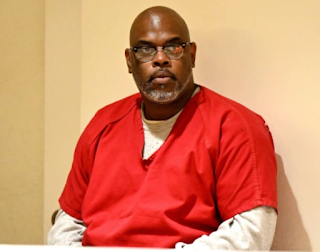Should Police and Fire activate the BLUE FLU Nationwide ?
Blue Flu day is rare but officers use it to prove to communities their value. They all call in sick on the same day!
People in communities all over are calling for officers to organize A National BLUE FLU day!
Attention: Those of us that are aware how much we need and respect our officers, we need to encourage them Nationally to organize a BLUE FLU day!
It's where they organize as many officers to call in sick on a designated day so the community can see just what life is really like without them! Maybe they would be appreciated more for what they do for our community.
In 1978 Memphis Fire Department and Memphis Police Department went on strike. The so-called "Blue Flu" demonstration has not been deemed a strike yet, but Memphians are reminded of this event that happened decades ago.
Labors relations between our city government and fire and police hit an all time low on July 8, 1978.
WMC Action News 5 Anchor Joe Birch was there and covered the tumultuous strikes of that entire summer.
It was 7 Saturday morning, July 1, 1978. Memphis firefighters walked off the job behind Union Avenue's Engine House number 11. As 1,400 firefighters walked off the job that night, Memphis burned.
More than 200 fires, mostly in vacant structures destroyed some $3 millon worth of property.
No one was ever prosecuted. Non-union commanders battled the blazes.
The National Guard was called in along with U.S. Forestry Service firefighters. A judge ordered strikers back to work by the July 4, 1978 but tempers were hot.
By August, Memphis police, unhappy with the failure of contract talks with the city, started their own strike.
Some strikers damaged city property, blocked access to police precincts, and a few threatened officers remaining on duty with bodily harm. Mayor Wyeth Chandler declared a civil emergency, ordered a curfew, and called in the Tennessee National Guard.
Firefighters struck again in sympathy with police. On the night of August 15, 1978—while both police and firefighters were striking and 10 p.m. to 6 a.m. curfew was in effect—the lights went out in Memphis.
A citywide blackout left Shelby County deputies to respond to reports of some looting.
The combined police-fire strike ended after eight days. After that difficult summer, Memphis voters changed the city charter to make it clear future strikers would be fired and if rehired, would start as new employees.
Meanwhile, while the current case of the "Blue Flu" is a concern, it is nowhere near the extremes of the summer of strikes in 1978.
We need officers to organize a National BLUE FLU day!
We should support the Nations Officers!
Please share this in your community boards..
Most Police Officer really do join the force to serve and protect (plus earn a living for themselves and family). But when the public they serve turns on them and then put the blame on them for their rioting and looting and shooting down officers in the line of duty.
I can't imagine why any officer would want to pull over a driver for violating the law or for having outstanding warrants or even answer a call for domestic violence in the neighborhoods represented by the rioters. If you try and arrest a suspect and they resist, what the heck do they expect the officer to do?



Comments
Post a Comment